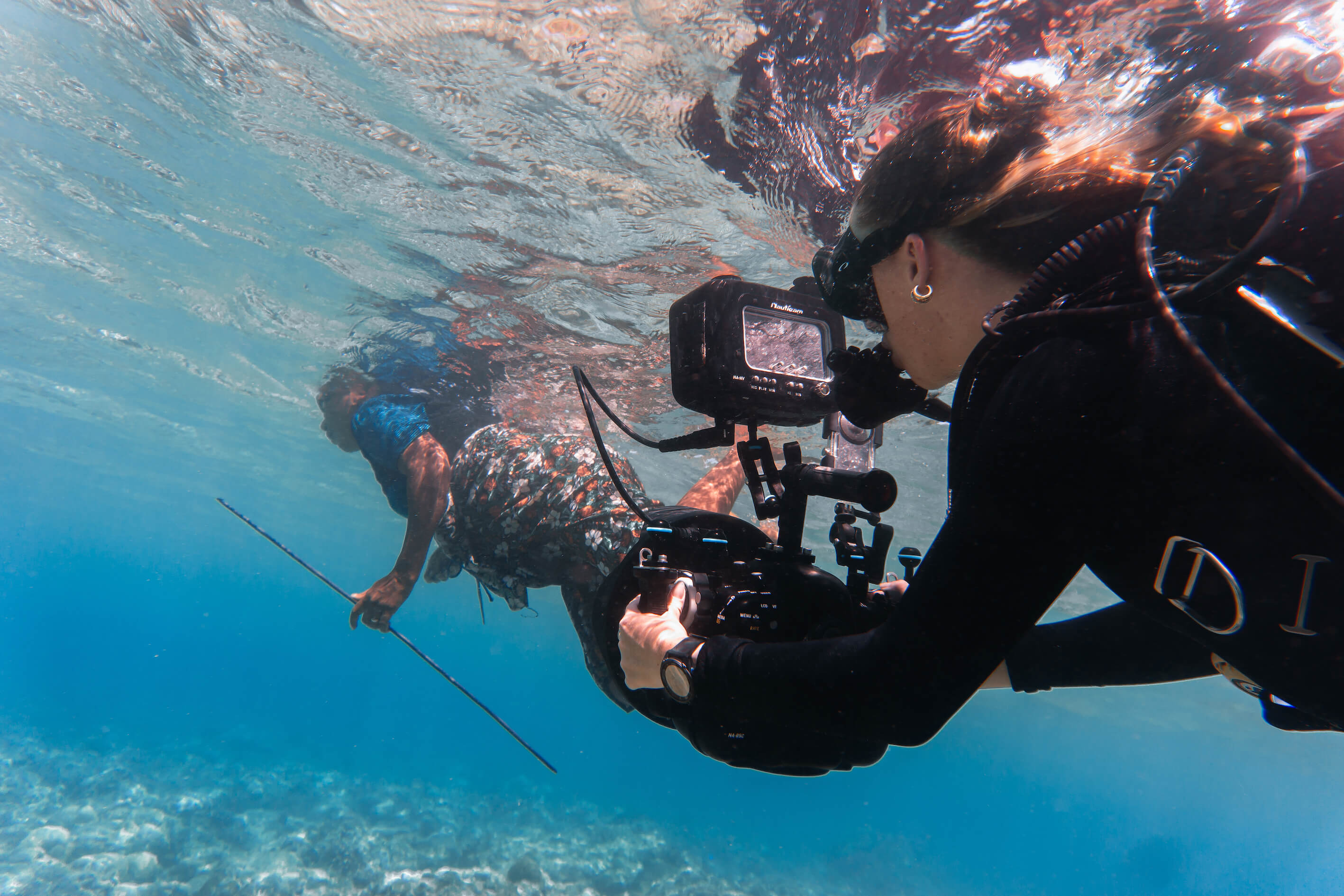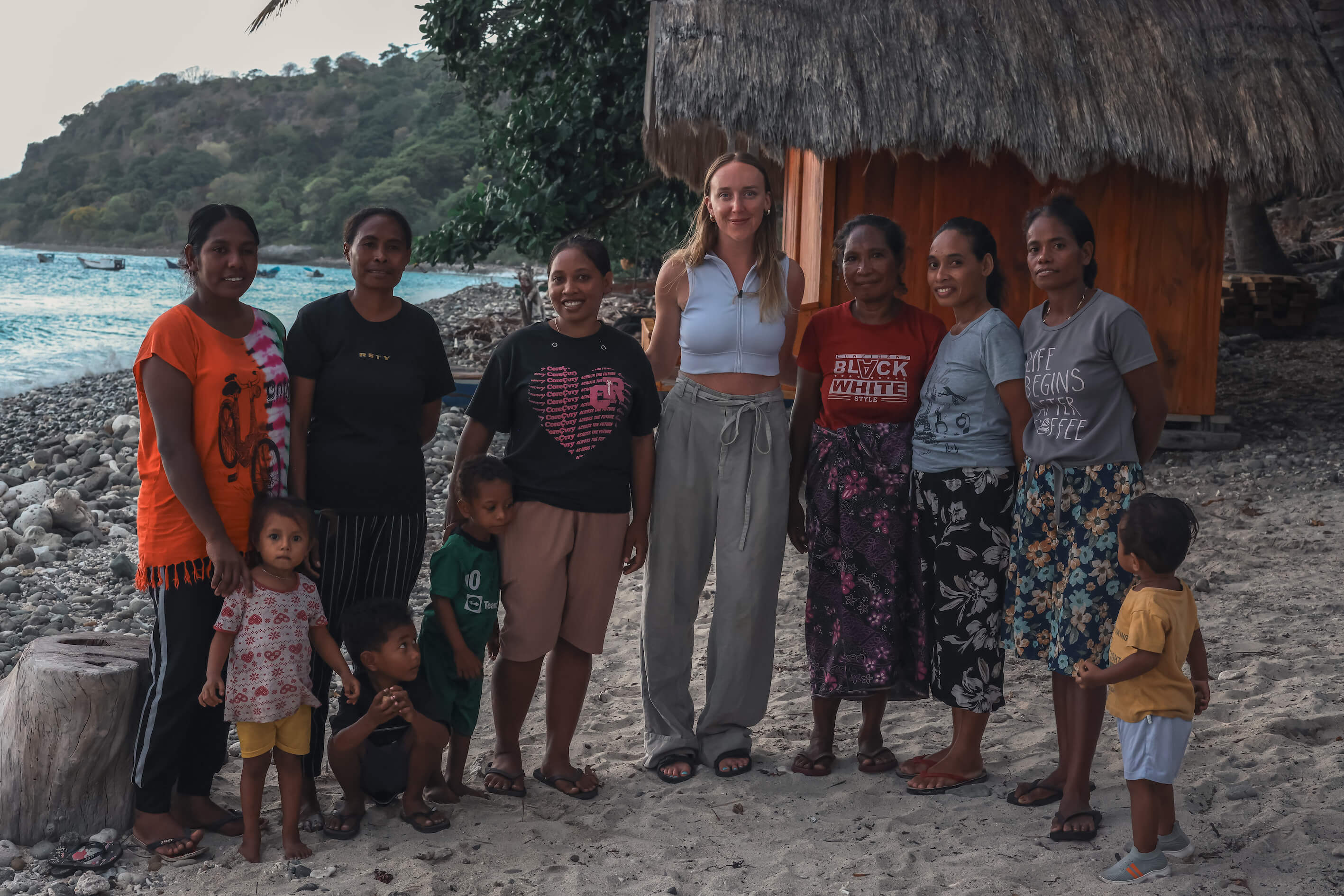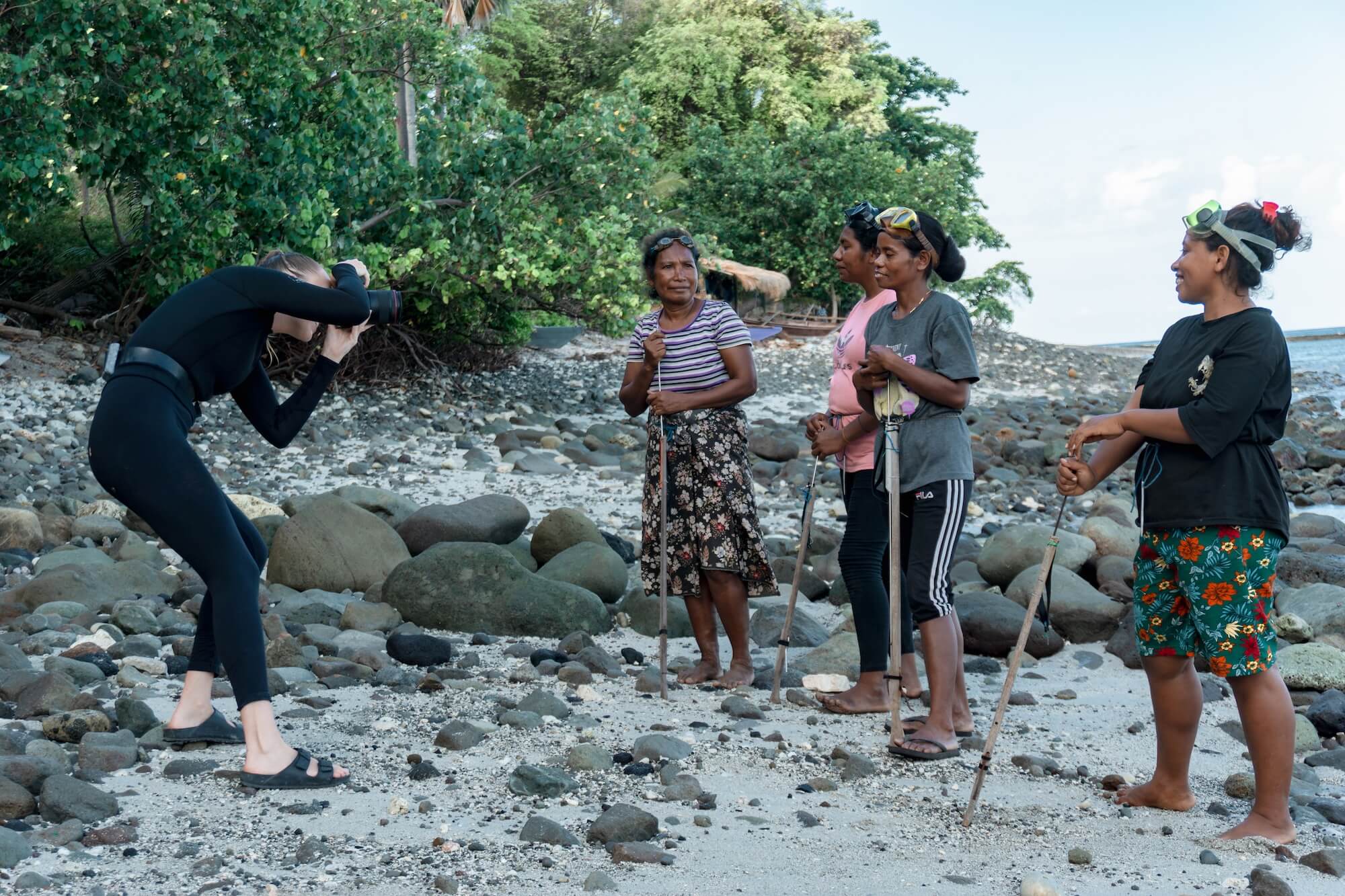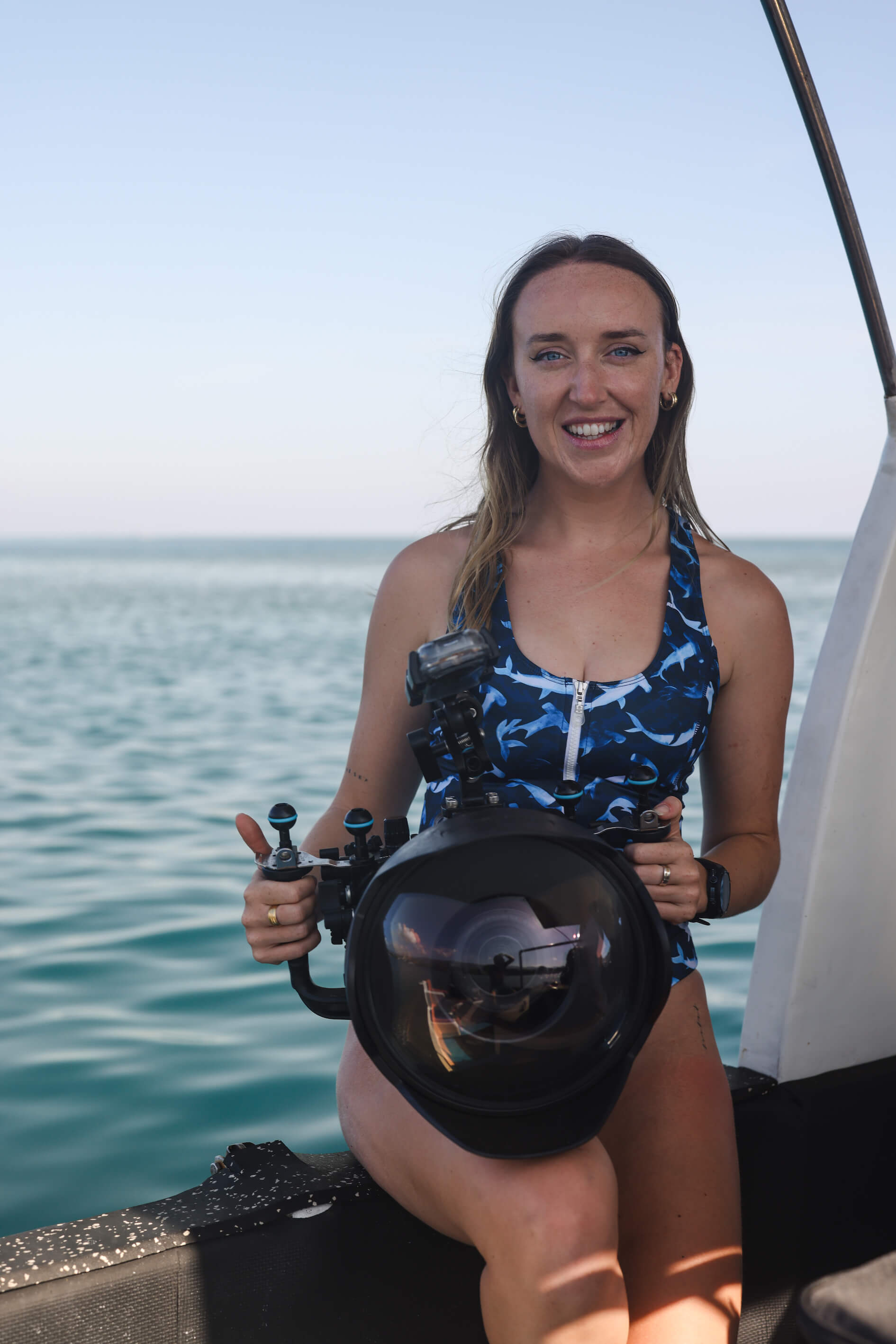The Wawata Topu freedivers and the protection that could save them
“Watching the Wawata Topu fishing is just a mesmerising experience,” says filmmaker Mads St Clair . “Diving in sarongs and flip-flops using handmade wooden spear guns, they move with this calm, graceful precision; not much fuss or overthinking, just skill and instinct.”
Known as the ‘mermaids’ of Timor-Leste, this astonishing group of women divers is vital for the survival of the small fishing community of Adara, as is the protection of the surrounding ocean that provides their catch.
This is a place where life seems simple. A million miles away from the tech-driven world in which most of us exist, Adara has no Wi-Fi, limited power and minimal connections, even to the other side of the island. The reality of this simplicity, however, is rather different.
Having recently joined the women to photograph and film for Oceanographic Magazine , Arksen ambassador St Clair has first-hand experience of just how challenging life is in this remote island paradise – and what is needed for its survival.
“The Wawata Topu are highly efficient fishers and they are incredibly successful,” she begins. “Even in the shallow water, they can catch octopus, reef fish, and I saw them multiple fish per dive, threading them onto these strings they tie around their waists.
“They spot things so well. They have this kind of intimate knowledge of the reef, they know where to look, how to spot the movement of the fish and exactly when to strike. But the size and species of fish they caught – a lot of very small reef fish – was interesting.
“These were species I wouldn't assume are good for eating, but this is not a sport; this is survival; this is what provisioning in an ocean-dependent community looks like. It was a privilege to film them and tell their story but it was also very eye-opening to see.”

ANCIENT TRADITION
Meeting Agustina Quteres, one of the oldest of the Wawata Topu, St Clair learned how she was taught by her father, has been fishing for more than 50 years and is now passing down her skills to the next generation amongst the 28 households who live in this remote village.
The videographer saw a totally different world to that of commercial spearfishing, with divers wearing hand-carved wooden goggles, tied by pieces of frayed fishing line; simple spearguns hand-carved from local hardwood, with simple rubber band mechanisms.
Filming was a challenge from the outset. Logistical and connectivity challenges left St Clair and her safety diver with just one bottle of air each to capture all the footage, while baking heat made sleeping impossible and limited power sources left camera batteries half charged.
Although all were vital for the work she was there to carry out, such first-world challenges soon seemed trivial in importance compared to having to catch food for your family’s next dinner plate – and St Clair soon discovered just how hard that can be.
“The first day was one of the scariest I've had in my entire career in the ocean,” she recounts. “We were following the Wawata Topu out through the shallow water when suddenly the current changed direction and it ripped, pulling us out and away.
“I've been diving for long enough to know not to panic but when I popped my head back up and saw all the heads of the Wawata Topu everywhere, we quickly realised this was bad. We were being pulled quite far from the village and even just staying in place was impossible.
“The only option was to go into shore to the reef flat where the waves were breaking in small rolls, but the reef was not smooth like it was in the village; it was made up of really, really sharp dead coral. You do not want to end up on that, because it will shred you.”
Barefooted after tearing off her diving fins and desperately holding onto her expensive underwater camera gear, St Clair was pummelled against the floor, getting scraped and dragged, until one of the mermaids arrived to save her.
“I was trying to hold my kit, dive gear and fins and brace against the waves when they came to pull me out,” she continues. “They were incredible – and one of them even gave me their flip-flops to help me walk back over the forest floor because I was slowing them all down!”

CHANGING CHALLENGE
The Wawata Topu have been fishing this way for as long as anyone can remember. Such changing conditions, rip tides and extreme physical effort have always played their part, but nowadays that is not their only challenge.
Through the years, things around the islands have changed. The global demand for fish has made self-subsistence increasingly challenging, with large-scale international fishing depleting the local stocks.
To combat that, the village has set up a community-managed Marine Protected Area (MPA), with certain areas of the reef technically off-limits to fishing to allow species to recover and spill over into the adjacent areas, where local fishing is allowed.
As St Clair attests, despite the immense skills of the Wawata Topu, the current catch is neither abundant nor of optimal quality, but the hope is that this self-policed protection, which has been in place for around 10 years, will soon provide a solution.
“I talked to them about the MPA and their concerns for the future and it was good to see how they were all aware of it and understand how it works, the overspill effect,” says St Clair. “But the most striking thing was that they are aware of change.
“It was repeated by pretty much all of them: the ocean isn't what it used to be. They're noticing the fish are smaller; they're spending longer searching for the fish; and it's not an abstract thought of a changing ocean, it is felt very directly in their daily lives.
“The protected area is governed by Tara Bandu, a law system rooted in a ceremony and community agreement which was traditionally done in forests. I believe this was the first one that was done in the ocean and they spoke very proudly of it.
“They had a strong sense of stewardship and also of legacy. A lot of them wanted to teach their daughters to fish, perhaps not just as a livelihood but as a way to protect what's left. In terms of the future, it seemed like they felt uncertain but not hopeless.”

BASTION FOR CHANGE
Having come out of 30 years of civil war, Timor-Leste is one of the youngest countries in the world – and it is also home to some of the world’s most biodiverse reefs, with waters frequented annually by pygmy blue whales on the journey back down to Antarctica.
Now, through its community MPA, St Clair believes it is also home to a place that can be used as a bastion for change. She concludes: “There are a lot of MPAs around the world right now, but not a lot are well enforced or have the funding to be well enforced.
“MPAs that are community-led are critical. They are such a good solution because to work, they have to be designed with the community, not imposed from the outside, and part of this is making sure that there is community buy-in.
“The community needs an incentive to protect the area – and that can be challenging when you have people who depend on that reef for their primary source of protein. They need to understand the problem and see the benefits.
“The incentives don't necessarily have to be financial; they can be ecological or emotional. In Adara, the main incentive is the promise of big fish to come from that spillover effect and if you have a no-take zone that's too restrictive, it can do more harm than good.
“These people are on the front line of ocean change. Adara's reef had been quite decimated from overfishing, so an MPA was essential to allow fish populations to recover and it offers hope for a biodiversity recovery that can support both the ocean and the Wawata Topu.”
Mads St Clair is a British tropical marine biologist, conservation photographer, filmmaker and expedition leader who focuses on ocean conservation and gender equity within marine science. She is currently the Oceanographic Storyteller in Residence, supported by Arksen.

